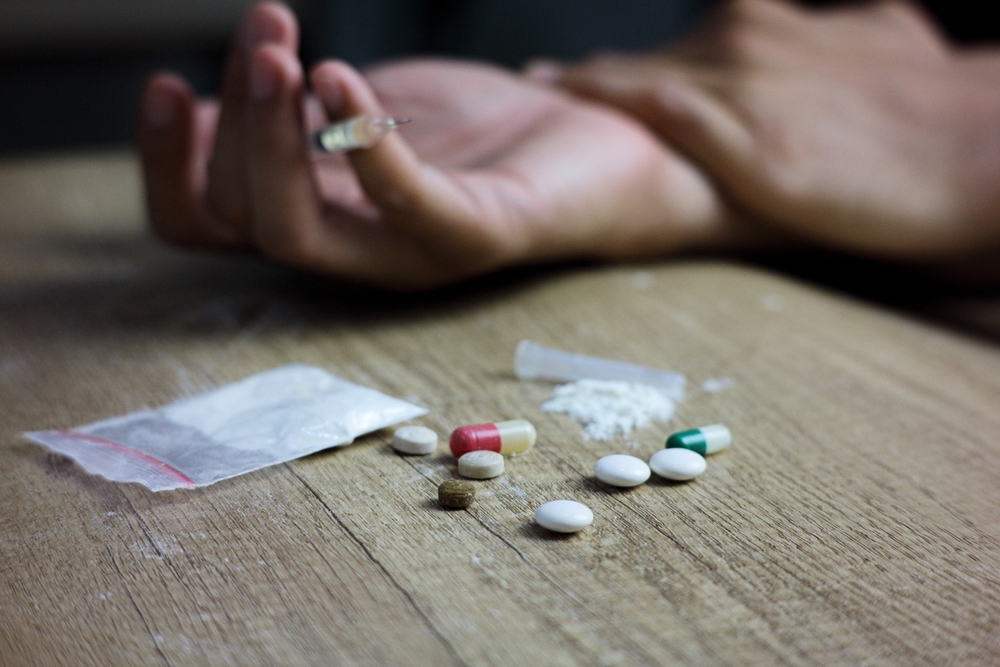Last Updated:
May 28th, 2025

Addiction can bring people to the extremes of their physical, mental and emotional well-being. Complete recovery is often an uphill battle deceptive enough to make someone feel as though they’re backsliding, even as they’re making progress.
Understanding the emotional rollercoaster within addiction
For millions of people with addiction, returning to a substance can feel like a never-ending ride between extreme feelings of hope and despair.
As a person enters recovery, it may be the first time in years that they’ve made a proactive step toward a healthier, drug-free life. Most people with an addiction have been without positive reinforcement for years, whether from themselves or from those around them. The initiation of treating oneself more kindly can be emotionally overwhelming.
Small victories generate hope in addiction recovery, from something as small as a day spent sober to a heart-to-heart with a loved one. Clearer thinking makes a person with an addiction feel more confident about regaining control of their future.
However, despair often lurks close by to these moments of hope. Overwhelming cravings, past regrets and the stigma surrounding addiction recovery can devastate the efforts made to get better. It is often the time immediately after feeling most hopeful that our efforts come crashing down. The speed at which feelings of hope and despair swing often makes recovery disturbing and disorienting, with any substantial progress being overshadowed by small setbacks or relapse.
Fluctuating emotions can make recovery feel like a battle of the body and mind or even a spiritual conflict. Having some forethought and leeway for the anticipated rollercoaster of emotions can help you prepare for the challenges ahead.
What are the biggest challenges in recovery?
The recovery process is fraught with challenges and unforeseen twists in the road. For those battling a drug or alcohol addiction, they are often presented with the most difficult points in their life. Breaking under this pressure and relapsing is not uncommon, and it doesn’t signify a failure on the long road to recovery.
Some of the biggest challenges for a person battling an alcohol or drug addiction can include:
Physical withdrawal
The early stages of cessation from many drugs can come with painful physical withdrawals. Some research defines physical withdrawal as an aversive state that motivates drug-seeking and drug-taking behaviours. Withdrawal from some substances like alcohol or benzodiazepines can cause seizures or a potentially fatal condition known as delirium tremens. Severe physical withdrawal typically benefits from professional, medically managed detox.
Emotional turmoil
Beyond the physical pains of withdrawal, recovery usually shines a light on your emotions, which is not easy to endure. Feelings of guilt, regret or hopelessness can surface, and without the substance you use to help manage these emotions, recovery can feel overwhelming. Prolonged use of a substance leads to the formation of substance use disorders, with research highlighting that people with an SUD have a much harder time regulating emotions than people without one.
Being around influential people and forces
To uphold a sustained effort for full recovery from a substance, many medical professionals and therapists recommend addressing and changing “People, places and things.” Entering into recovery can require an upheaval of your lifestyle, including the places you go to and the people you usually spend time with. To help with this, it can help to write up a list of people you’re more likely to take a substance with or the locations you are most likely to take it. Changing one or both can make holding on to sober living easier.
Developing new coping strategies
In addition to making efforts to regulate the people, places and things around you, substance recovery can often hinge on your ability to develop new, healthy coping strategies. For a person struggling with a long-term addiction, substances can become an element that an entire day revolves around. Cessation of a drug in rehab can create a “void,” or an empty time that used to be dedicated to a substance and the lingering after-effects.
Many recovery centres develop step programmes for “purpose of life” development. These programmes are in place to guide a person as they develop healthier practices and routines. A connection with a community massively improves the chances of long-term or even lifelong recovery.

How do people hold on in their time of need?
It’s important to remember that each person’s path to recovery is unique and requires a personal commitment to sobriety. When the weight of drug addiction feels unbearable, a person can question whether holding on to sobriety is even possible. A time of need can happen at any stage of recovery, though it can be beneficial to remember that recovery is not a race. You don’t have to feel guilty if it takes you longer than you thought it would.
If you’re struggling to sustain your sobriety and recovery, here are some practices to help support you:
Find a support group
Online groups are a great way to connect with people who have struggled with the same recovery challenges. Recovery can create feelings of extreme isolation and insupportable loneliness as you readjust. Companies such as Alcoholics Anonymous and Narcotics Anonymous can open the door to connecting with supportive people. Tackling isolation is easier with a group of peers who understand your struggles.
Some smartphone apps can also help you stay on track and contextualise the amount of time and money you’ve saved in sobriety, as well as give support for the achievements you can’t measure so easily.
Build a support network
During the most difficult moments of recovery, you may find it hard to connect with peers. This can create a time when it’s important to lean on close friends and family, communicating how you need their support. You must remember that there’s only so much they can do to help. It may be beneficial to try counselling or family therapy with your loved ones to get deeper into personal issues.
Strive to have sober friends who can be invited as plus-ones to your social events. Creating your own support network can be challenging, so make sure you have someone with your best interests at heart to talk to when pressure builds.
Find activities that mean something to you
Starting physical activities may trigger latent interests and create a sense of purpose and direction. Exercise, however small it is, can kickstart improvements in your physical health. Volunteering for a cause like animal shelters and children’s hospitals can deeply reward a spirit struggling to stay motivated. Mental health improvements follow as you’re able to “fill the void” left after removing a substance from your life.
Be the role of ‘designated driver’
At later stages of the recovery process, you will likely still yearn to be around your friends who may still drink. If you’re in an environment where people are drinking, make yourself the designated driver. This gives a sense of purpose that keeps you focused and is a quick explanation for anyone who asks. Applying this role may help you stay sober for tasks the following morning or later on in the week. Lean into it.
You don’t have to be alone on your journey to recovery
Substance and alcohol detox can lead a person to feel frightened and overwhelmed. Completing detox itself might appear as an insurmountable challenge, but we want to let you know that our support is here to help you. You can do it.
Here at UKAT, we specialise in expert detox programmes that provide the physical and mental support you need to recover. Our expert staff delivers detox, therapy and aftercare programmes to help you navigate the path to sustained recovery.
If you resonate with any points made today, reach out to us. A lifetime of sobriety is just one phone call away.
(Click here to see works cited)
- Chartoff EH, Carlezon WA Jr. Drug withdrawal conceptualized as a stressor. Behav Pharmacol. 2014 Sep;25(5-6):473-92. doi: 10.1097/FBP.0000000000000080. PMID: 25083570; PMCID: PMC4321719.
- Rahman A, Paul M. Delirium Tremens. [Updated 2023 Aug 14]. In: StatPearls [Internet]. Treasure Island (FL): StatPearls Publishing; 2024 Jan-. Available from: https://www.ncbi.nlm.nih.gov/books/NBK482134/
- Stellern J, Xiao KB, Grennell E, Sanches M, Gowin JL, Sloan ME. Emotion regulation in substance use disorders: a systematic review and meta-analysis. Addiction. 2023 Jan;118(1):30-47. doi: 10.1111/add.16001. Epub 2022 Aug 11. PMID: 35851975; PMCID: PMC10087816.
- “Why Change People, Places, and Things in Early Recovery?” Psychology Today, Sussex Publishers, www.psychologytoday.com/intl/blog/understanding-addiction/202106/why-change-people-places-and-things-in-early-recovery

